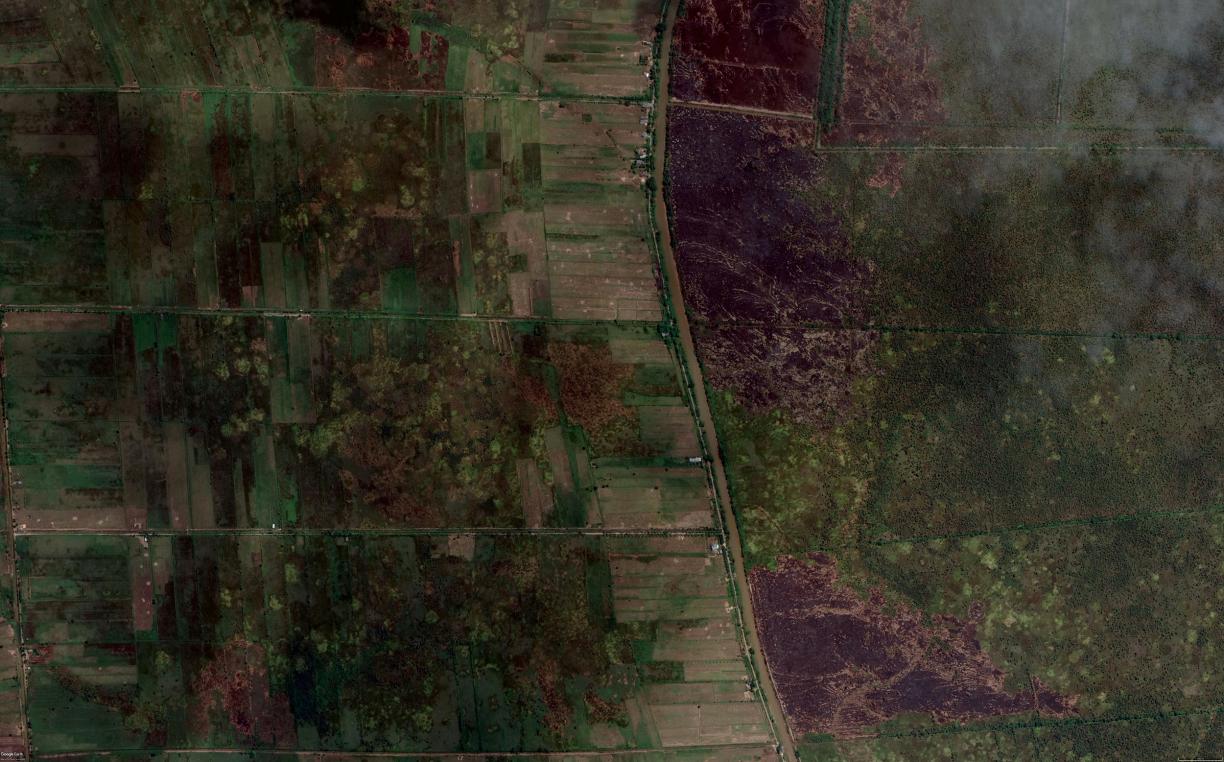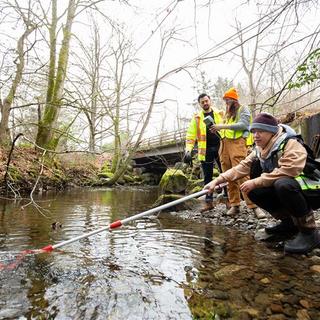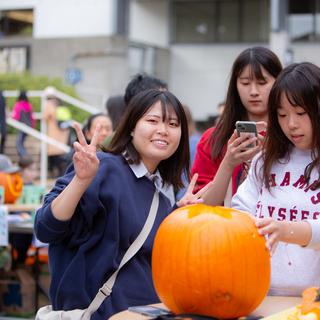Burn scars in late 2017 on peatlands in Central Kalimantan province, Indonesia. Google Earth image
Research led by VIU’s Dr. Sean Sloan finds wildfire activity less severe today than in early 2000s, particularly in managed landscapes.
Fires have become less severe in Equatorial Asia, potentially marking a new chapter for this tropical epicentre of burning, drought and related carbon emissions, according to new research published in the journal Communications Earth & Environment on September 19.
Communications Earth & Environment is an open-access journal from the Nature Portfolio. Research papers published by the journal represent significant advances that bring new insight to a specialized area in Earth science, planetary science or environmental science.
Using satellite data, scientists from Vancouver Island University (VIU), France’s Agricultural Research Centre for International Development, Cardiff University, Boise State University, TheTreeMap and The Australian National University observed individual fires over the period 2000 to 2019 in Indonesia to estimate their severity – defined by the amount of energy they release, their duration and size – in relation to rainfall.
“We discovered that fires were becoming less severe by the late 2010s, compared to the early 2000s, for a given level of drought,” said Dr. Sean Sloan, VIU’s Canada Research Chair in the Human Dimensions of Sustainability and Resilience, who led the study. After controlling for large fluctuations in rainfall caused by global El Niño climatic cycles, scientists observed that fires experienced steady declines to their severity between 2002 and 2019, particularly on Sumatra, one of the Sunda Islands of western Indonesia.
Declines to fire severity concentrated over managed lands. Although agricultural activity such as land clearing historically drove extreme burning, this study revealed mosaic croplands were 11 per cent less common among severe fires by the late 2010s compared to the early 2000s.
“These declines to severe fire activity seem counterintuitive because, in absolute terms, fire activity might not have decreased, given extreme year-on-year variability,” said co-author Dr. David Gaveau, a scientist with TheTreeMap. “What we find is that burning during the droughts of 2015 and 2019 was less extreme than if those droughts had occurred instead during the early 2000s.”
2015 and 2019 were among the worst years for fire and, particularly, drought since the unprecedented burning of 1997. As with other extreme fire seasons, burning resulted from progressive forest conversion, mainly for agricultural commodities like palm oil, and entailed huge economic, ecological and health costs. After decades of agricultural activity boosting extreme burning, the study highlights that land management may now be dampening it.
“We’ve debated whether the decline to severe fire activity is the result of improved fire governance by government and plantation companies, or the result of plantation consolidation in Sumatra and Kalimantan,” said Gaveau. “Clearly, nobody wants to burn their assets.”
The findings mean that over the last 20 years, Indonesian burning has become less sensitive to recurrent El Niño drought.
“Optimistically, if this trend holds steady, burning may decline more profoundly over future decades. For this, stubborn burning on high-carbon peatlands must still be addressed,” said Sloan.
Read the research article on the Communications Earth & Environment journal’s website.
For more information, email Sloan at sean.sloan@viu.ca or Gaveau at d.gaveau@thetreemap.com.
-30-
Media Contact:
Rachel Stern, Communications Officer, Vancouver Island University
C: 250.618.0373 l E: Rachel.Stern@viu.ca | T: @VIUNews
About TheTreeMap
TheTreeMap are environmental scientists, remote sensing experts, mapping specialists, software engineers and field investigators. They build systems that check the deforestation footprint of agribusinesses in tropical forests to ensure sustainable production. Their work is based on the premise that no one wants food and other products to be the cause of forest destruction.
About Vancouver Island University
Vancouver Island University (VIU), located on the west coast of Canada, is one of the country’s most inclusive universities. We place students at the centre of our work, recognizing that education is a key determinant of social progress and economic prosperity. Our unique student experience includes small class sizes; dedicated, award-winning faculty; and exceptional undergraduate research opportunities that are often realized in collaboration with our many community partners.





